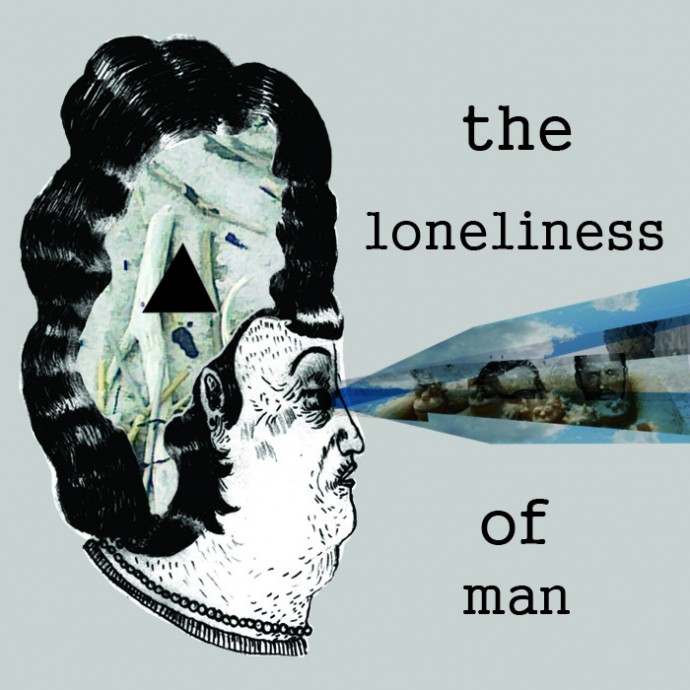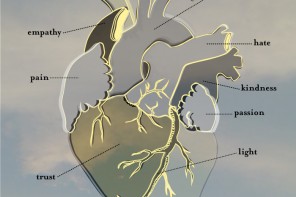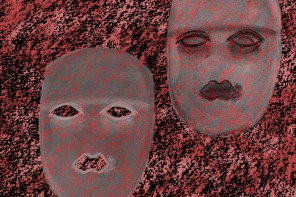There are so many things he can’t stop thinking about. This is one of them: Inside our heads we are utterly alone. And that’s the only place we are ever going to be. There is no one and nowhere else. We are each an individual and indivisible mind. And ultimately we are alone. His full title is Professor Emeritus of Behavioural Science. There are things that people have to know. He drinks only a particular type of green tea, expensive and imported from China. The leaves are tightly rolled up, but slowly unfurl as they steep in the water. His face is full of life, and he is smiling warmly, but this is a serious occasion. His words are coming fast. He is telling me about the thoughts that haunt him.
We do not see the real world. Think about it! Are you looking out of your eyes? No! Light is pouring in. You are not looking out. Light – whatever it is, call it photons if you like, but that’s just the Greek word for light – that great mystery is pouring into our eyes – those wonders of cellular adaptation. So sensitive they can feel a single atom of light!
It seems as if we are sitting in our heads looking out of our eyes, as if they were windowpanes. But this is not what is happening. What we actually see is a picture or a map of the real world that we create for ourselves in our solitary mind. We devote much of our energies to creating this map of the world. We do it throughout our lives, without ever noticing that what we think of as the real world is actually a picture we have created in our minds. We can never see the real world.
Let me tell you something that really disturbs me. We human beings differ from any other known phenomena in the universe. A human mind is such a marvel it makes me believe in God; it has an adumbration of the divine but it is not itself infallible or omnipotent – it has a deadly flaw. In great part because of ultimate solitary nature, people can be made to believe almost anything.
Think of our forebears – biologically identical to us. But how diverse and variegated were their beliefs! Imagine the pictures that filled the minds of the astronomers of Egypt as they directed the creation of the pyramids. Were they laying out a map of Heaven upon the Earth?
How slow we are to wonder if our own picture of the world isn’t also wrong. Indeed, it is almost unthinkable. We might admit that we don’t know everything, that our picture of the universe is not complete. We even concede that we may be mistaken about one or two details. But this map in our heads that we have spent so long creating, it is almost impossible for us to even postulate that it might contain serious errors. It is all we have. It is all we can ever know.
But, perhaps greater than this instinctive fear of the unknown, there is a clearer explanation for why we believe the picture in our head to be true. It explains why the myriad diverse cultures in history believed that the picture in their heads was more or less correct. It has very little to do with reason and logic. It is nothing to do with carefully analysing evidence. It is simply that people believe whatever they think everyone else around them believes. This phenomenon is very well understood.
Psychology is a two-faced science. There is its public face, where people play parlour games looking for meanings in blotches of ink, and turn mystic, analysing secret significances in dreams. And there is its hidden face, to which human beings are merely points of data. It is not widely known what powerful advances its hidden face has made. Metaphorically speaking, in the past century the Social Engineers have progressed the state of their art from the trebuchet to the cruise missile.
The picture of reality you have in your head is wrong. It is what Baudrillard called hyper-reality. It has been manufactured by hidden social engineers.
We live in a world of madness. Do you like football? Who doesn’t like it? Who doesn’t enjoy the World Cup? Billions of people are whipped into a frenzy for this. People tattoo the names of footballers onto their skin. The crowd roars like Vikings. Synchronized by satellites, huddled around a hundred million television screens congregations of individual solitary minds cheer, or curse, and shout and weep right upon cue. Everyone believes that what they are doing is reasonable. But the only reason they feel the way they do, and believe so strongly that they are right to feel as they do, is because everyone around them seems to believe the same thing.
Men are kicking a ball around a field – trying to score goals. Yet everyone seems to believe that something wondrous and of momentous import is occurring. The population of the world comes to believe that it all means something. This is done by design.
There are no boundaries between countries. There are no countries – the entire thing is a fiction. Yet when we drive across the border into Brazil we say, oh, how exciting, I am now in Brazil! And we feel something has changed. But it is all a fiction. We believe it because we think every else believes it.
In a café you hear people talking about politics, and what the Americans are doing. You hear the same tone in every voice. We all think we’re so clever, so cynical and perceptive. We congratulate ourselves on being such clear thinkers. We heckle the American presidents, but we never notice that we are heckling a theatre piece! They change the actors. We cheer them or we boo them, but we never notice it is all merely theatre.
Voting in an election is as meaningful as a child writing a letter to Santa Claus. In each situation a ritual is enacted that strengthens a belief in a fiction. When they declare an election, we convert our schools and libraries into polling stations. We make a special journey and make a secret mark on a piece of paper. We remind each other that people have died so we may participate in this activity. It is a meticulously crafted piece of social engineering to perpetuate the illusion of freedom. It is all to keep the great masses unaware of their slavery. The New World Order is not a democracy. No child’s letter ever gets to Santa Claus.
But it is so hard to get people to see! If we were sitting now in ancient Britain, talking with a shaman, in his home, in his land, do you think we could persuade him his picture of the world was largely a fantasy? I think he would not give up his beliefs easily.
And you, sitting here with me now – is it easy for you to accept that your picture of the world is almost certainly utterly mistaken? From the way you are looking at me, I think not. Almost everyone just goes on believing what they think everyone else believes. We are utterly alone in our heads. And it is well understood why we behave in the ways we do.







